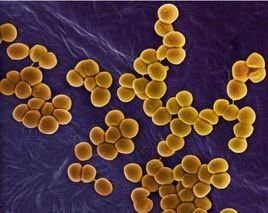Does benzalkonium chloride kill MRSA? The answer is YES. An altered form of staph called MRSA has actually emerged as well as, when not dealt with early, is resistant to almost the one antibiotic of the last resource.
Previously made use of in one of the most powerful cases, this medicine is being utilized more and more, and also, consequently, MRSA-Methicillin-Resistant Staphylococcus Aureus bacteria is creating resistance to this last effective drug.
Transmittable illnesses come to be immune to germs due to antibiotic overuse and abuse. When antibiotics are used for a virus, such as acute rhinitis, they have no effect. Individuals desire physicians and also anti-biotics will be suggested.
Well, bacteria intend to make it through. And also they do. We recommend anti-biotics; germs find out to adjust. We overuse or misuse prescription antibiotics; bacteria mutate, transforming just sufficient to make certain anti-biotics have no result on them as well as providing a wide berth to spread with ever before even more power.
Although tempting, preventative antibiotic regimes just aggravate the epidemic as well as enhance the germs. And also while new MRSA drugs are arising, it’s simply a matter of time prior to the superbug will come to be immune to them, also.
Staphylococcus aureus, itself, is a germ that’s commonly found on the skin or in individuals’ noses, but sometimes via skin infections or various other processes, it can trigger a systemic infection, and fatality from such causes as blood, meningitis, or pneumonia stream infections. The reference to staph infections as “methicillin immune,” suggests that they are highly immune to therapy by most typical groups of anti-biotics.
Benzalkonium chloride is utilized to decontaminate healthcare facility tools to avoid nosocomial infection triggered by microorganisms, such as Methicillin-Resistant Staphylococcus aureus (MRSA).
There are strains of MRSA isolated from medical facilities that were discovered to be resistant to benzalkonium chloride. A new laboratory research study indicates that many anti-bacterial products have some value, but a product made with benzethonium chloride eliminates typical types of non-hospital– or “community linked”– MRSA microorganisms far better than various other substances.
A wide array of biocidal representatives, consisting of quaternary ammonium substances (QACs), such as benzalkonium chloride (BAC) and also benzethonium chloride (BZT), and also divalent cations like chlorhexidine digluconate (CHDG) are commonly used in medical facilities as well as medical care facilities to decontaminate surfaces, disinfect the hands of medical facility workers, and also deal with hospital-acquired infections.
For such preventative steps, there are a variety of hand sanitizers offered with alcohol-free as well as alcohol-based disinfectant agents including ethanol, benzalkonium, as well as triclosan chloride. Just recently alcohol-free hand sanitizers with triclosan or benzalkonium chloride have been pushing on due to concerns that ethanol dries the skin, is also toxic, and there are regular situations of intentional intake.
Additional worries entail the substantial use of bactericides taking the chance of the careful survival of the antiseptic-resistant virus, which may be simultaneously picking for antibiotic resistance.
This theory of synchronized or “cross-selection” suggests that option of either antibacterial or antibiotic resistance will certainly also choose for the various others, inevitably causing weaker antibacterial treatment and also pressure for careful use of both biocides. In spite of suppositions of developing resistance systems, benzalkonium chloride is extensively made use of biocides specifically effective against surrounding microbes.
Every one of the items had some antibacterial performance versus MRSA germs, however, only the benzethonium chloride compound had a genuine “bactericidal” effect– indicating it reduced the variety of bacteria by a variable of 1,000– versus all four of the evaluated MRSA pressures.
Specifically, impermeability by additional or architecturally-complex surface layers in addition to the mobile membrane is typically shown by a variety of bacteria that provide benzalkonium chloride much less efficacious.
Not just is benzalkonium chloride protected against triggering cell lysis, but the uptake of benzalkonium chloride and various other active agents in hand sanitizers is badly inhibited. Also at high concentrations, benzalkonium chloride often tends to be “non-tidal” and is instead bacteriostatic, mycobacteriostatic, as well as sporostatic.
Biocides (anti-bacterial, antiseptics, as well as preservatives) are chemical substances related to inactivating or damaging microbes in different setups (e.g., the health care field, agriculture, and also the food market). By the mid-1900s, lots of biocidal substances remained in typical usage as industrial preservatives and also in the medical area. Today, biocides have actually come to be an essential part of the industrialized globe and also are important compounds in the control of human and also animal pathogens. Large amounts of biocides are as a result eaten in various settings, consisting of the medical atmosphere where they are utilized for antisepsis, disinfection, as well as cleansing.







